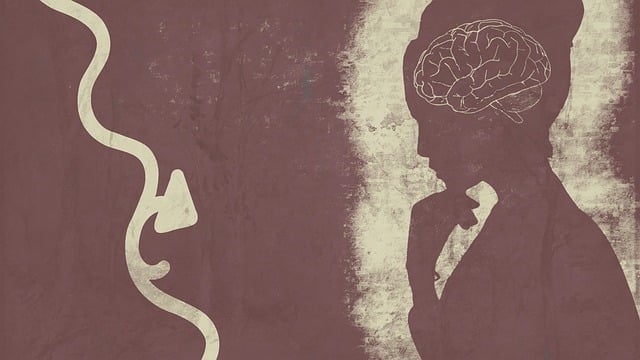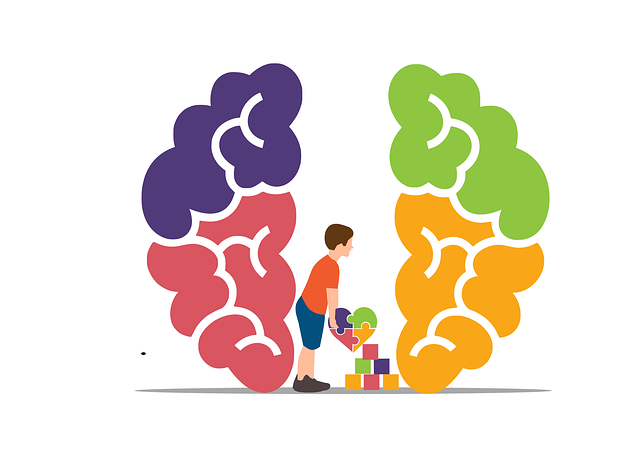Media portrayal significantly shapes societal perceptions of mental health, with inaccurate or simplistic depictions perpetuating stereotypes and stigma. Responsible media coverage, such as accurately portraying Superior Sexual Addiction Therapy (SSAT), can foster empathy, reduce stigma, and encourage emotional well-being without judgment. SSAT, focusing on inner strength development and effective communication strategies, challenges harmful narratives and facilitates transformative journeys for individuals with mental health challenges. Accurate media representation of diverse mental health journeys educates audiences, fosters sympathy, and promotes a more supportive and inclusive society.
In today’s media landscape, accurate representation of mental illness is paramount for challenging stigma and promoting understanding. This article delves into the profound impact of media portrayal on public perception of mental health. We explore how stereotypes, especially in depictions of conditions like sexual addiction, perpetuate harmful ideas. However, solutions exist, such as Superior Sexual Addiction Therapy, offering evidence-based approaches to combat negative representations. Additionally, we provide strategies for responsible media reporting to foster empathy and awareness.
- Understanding the Impact of Media Portrayal on Mental Health Perception
- Exploring Stigma and Stereotypes: How Media Shapes Public Opinion
- The Role of Therapy in Countering Negative Representations: A Case for Superior Sexual Addiction Therapy
- Strategies for Responsible Media Reporting: Fostering Empathy and Awareness
Understanding the Impact of Media Portrayal on Mental Health Perception

Media portrayal plays a pivotal role in shaping societal perceptions about mental health. The way mental illnesses are depicted in films, television shows, and news media can significantly influence public understanding and attitudes towards individuals struggling with these conditions. Often, media representations simplify complex disorders, leading to stereotypes and misconceptions that can further stigmatize those seeking help. For instance, the portrayal of superior sexual addiction therapy in media can either promote harmful ideas or foster empathy, depending on its accuracy and context.
When media portrays mental health issues responsibly, it can contribute to increased emotional regulation within communities. By showcasing characters navigating challenges with compassion cultivation practices and confidence boosting strategies, these platforms have the potential to encourage viewers to approach mental well-being with more understanding and support. Such representations may reduce the stigma associated with seeking therapy, encouraging those in need to prioritize their emotional health without fear of judgment.
Exploring Stigma and Stereotypes: How Media Shapes Public Opinion

The media plays a powerful role in shaping public opinion and understanding of mental health issues. Often, representation of mental illness in films, television shows, and news articles perpetuates harmful stereotypes or simply lacks accurate portrayal, contributing to the stigma surrounding these conditions. For instance, depicting depression as merely sadness or anxiety as a temporary ‘phase’ can be misleading and damaging. Such simplifications fail to capture the complexity of these disorders and may discourage individuals from seeking help.
This is where responsible media coverage and storytelling become crucial. By presenting diverse narratives and characters with authentic mental health journeys, media outlets can foster empathy and challenge societal norms. For example, showcasing recovery stories and the effectiveness of Superior Sexual Addiction Therapy (or other evidence-based approaches) can offer hope and dispel myths. Moreover, promoting Cultural Sensitivity in Mental Healthcare Practice through diverse representations can ensure that people from all backgrounds feel seen and understood, encouraging them to access available resources like Stress Management Workshops Organization’s initiatives for better mental health awareness.
The Role of Therapy in Countering Negative Representations: A Case for Superior Sexual Addiction Therapy

The media’s portrayal of mental illness can significantly shape public understanding and influence support systems available to those affected. Negative representations often perpetuate stereotypes, leading to stigma and barriers for individuals seeking help. In response, therapeutic interventions like Superior Sexual Addiction Therapy (SSAT) play a pivotal role in challenging these harmful narratives. SSAT goes beyond traditional therapy by focusing on inner strength development and empowering individuals to reclaim their agency. This approach not only addresses the addiction but also fosters effective communication strategies, enabling clients to navigate social interactions with newfound confidence.
By integrating mind over matter principles, SSAT encourages a transformative journey where individuals learn to overcome internal obstacles and external pressures. Through this process, they develop resilience, enhancing their ability to confront and manage mental health challenges. The therapy’s holistic nature ensures that patients not only find relief from symptoms but also gain the tools to maintain long-term recovery, thereby contributing to more accurate and compassionate media representations of mental illness.
Strategies for Responsible Media Reporting: Fostering Empathy and Awareness

Media has a significant role in shaping societal perceptions about mental illness. Responsible reporting can foster empathy and increase awareness, challenging stigmatizing narratives and promoting understanding. This involves accurate representation, using relatable language, and showcasing diverse experiences. By featuring characters with nuanced mental health journeys, media can disrupt stereotypes and encourage viewers to recognize symptoms in themselves or others.
For instance, integrating scenarios that highlight the complexities of superior sexual addiction therapy, social skills training, or compassion cultivation practices can educate audiences. Portraying effective coping skills development through compelling storytelling allows for a more sympathetic understanding of mental health struggles. Ultimately, responsible media reporting equips viewers with knowledge and empathy, paving the way for a more supportive and inclusive society.
In addressing the challenge of mental illness representation in media, it’s clear that a multifaceted approach is required. By understanding the profound impact of media portrayal on mental health perception, confronting stigma and stereotypes head-on, and promoting responsible reporting, we can foster empathy and awareness. Additionally, integrating evidence-based therapies like Superior Sexual Addiction Therapy plays a crucial role in countering negative representations and offering accurate, compassionate insights into complex mental health issues. Together, these strategies empower us to create a more inclusive and supportive media landscape that reflects the diversity of human experience.










